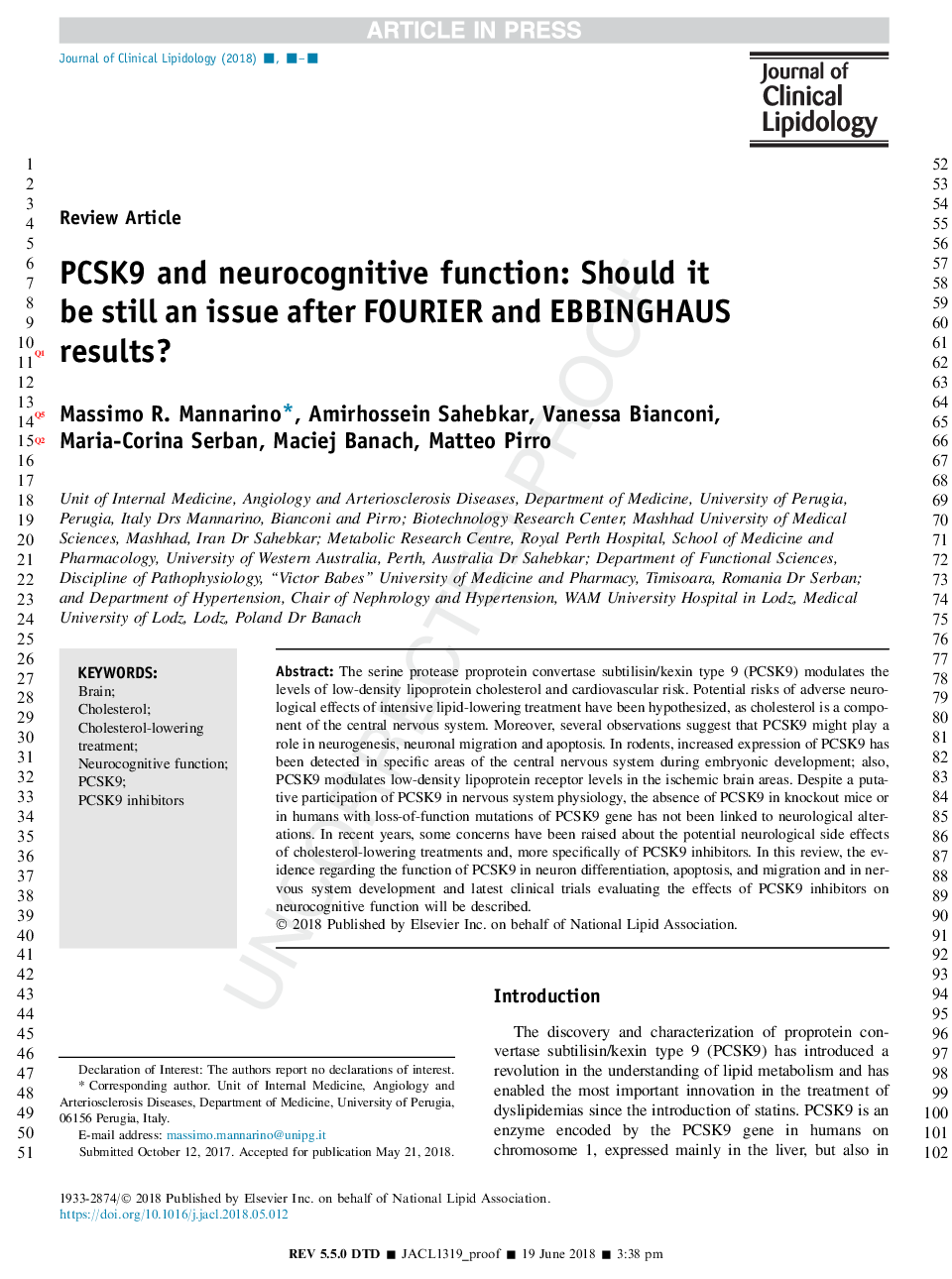| Article ID | Journal | Published Year | Pages | File Type |
|---|---|---|---|---|
| 11008567 | Journal of Clinical Lipidology | 2018 | 10 Pages |
Abstract
The serine protease proprotein convertase subtilisin/kexin type 9 (PCSK9) modulates the levels of low-density lipoprotein cholesterol and cardiovascular risk. Potential risks of adverse neurological effects of intensive lipid-lowering treatment have been hypothesized, as cholesterol is a component of the central nervous system. Moreover, several observations suggest that PCSK9 might play a role in neurogenesis, neuronal migration and apoptosis. In rodents, increased expression of PCSK9 has been detected in specific areas of the central nervous system during embryonic development; also, PCSK9 modulates low-density lipoprotein receptor levels in the ischemic brain areas. Despite a putative participation of PCSK9 in nervous system physiology, the absence of PCSK9 in knockout mice or in humans with loss-of-function mutations of PCSK9 gene has not been linked to neurological alterations. In recent years, some concerns have been raised about the potential neurological side effects of cholesterol-lowering treatments and, more specifically of PCSK9 inhibitors. In this review, the evidence regarding the function of PCSK9 in neuron differentiation, apoptosis, and migration and in nervous system development and latest clinical trials evaluating the effects of PCSK9 inhibitors on neurocognitive function will be described.
Related Topics
Health Sciences
Medicine and Dentistry
Cardiology and Cardiovascular Medicine
Authors
Massimo R. MD, PhD, Amirhossein PharmD, PhD, Vanessa MD, Maria-Corina MD, PhD, Maciej MD, PhD, Matteo MD, PhD,
